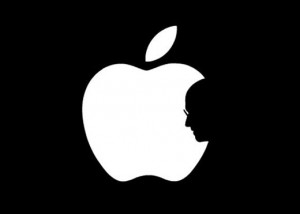 As long as I can remember, I have always had the love of reading. When I was very young, I read everything that I could get my hands on. Book after book, I read and derived joy from that. Then as a teen, it all changed. Not because I lost the love of reading, but because the landscape for me had altered radically.
As long as I can remember, I have always had the love of reading. When I was very young, I read everything that I could get my hands on. Book after book, I read and derived joy from that. Then as a teen, it all changed. Not because I lost the love of reading, but because the landscape for me had altered radically.
At the age of 15, I was diagnosed with Stargardt’s Disease, a genetic dystrophy of the retina that causes central vision loss.
So reading became more difficult. I bought large print books. Teachers were very accommodating, and I had great family support. And then later in life technology saved the day.
Screen-reading tools made it possible for me to do everything anyone can do on a computer. That was and continues to be truly transformative. I am using this marvelous digital aid right now as I type this post.
All this was great and served me well, so long as I was tethered to my desktop or laptop. But mobile devices were small and inaccessible. I bought phones to make phone calls. No texting, no web usage, no email on my phone. I couldn’t see the screen well enough.
Then Steve Jobs and Apple had a better idea. When the iPhone 3gs came out, I had to get one. It arrived with voiceover capacity, which meant the mobile world opened up instantly for people like me. My phone and my iPad could read to me. They echoed my typing; they said the name of the app when I touched it. This was incredible. Suddenly, I could text!
The accessibility that is built into Apple products has changed not only my working and personal life, but the lives of millions of people with vision impairments and other challenges that can be overcome with the right technology. All this is great evidence of the end-user focus that was always a hallmark of Steve Jobs’s approach to product development. He and his people clearly saw that they could open up the Apple world to a small segment of the population that is blind or visually impaired in a truly powerful way.
His impact cannot be overestimated
So when I received the news last Wednesday evening, by text, that Steve had died, I was sad and grateful. The loss of this visionary person made news around the world. The #iSad tag was all over twitter. And he died the day after iOS5, iCloud, and the iPhone 4s were introduced right there at headquarters in Cupertino CA.
The fact that I can get up each day, check my mail, visit my personal learning network on twitter, read a chapter in my latest favorite book on my iBookshelf, send and receive a text message, check the score of a game, or check in with FourSquare and locate friends, means that for me, and people like me, everything has changed. And Steve Jobs made this possible. The impact of it all cannot be overestimated. It’s incredible, in fact. All the accessibility is built right into the devices. No additional expense. No add-ons. It is all right there, on all Macs, and all “i” devices. And simple to use.
The visionary who led a company to make the tools of today smaller and simpler to use, who made us all “need” devices that — prior to seeing them — we could not even conceive of, has altered our reality in profound ways. I remember when I first saw the iPad — I didn’t know why I would ever want one. Now my iPad 2 is never very far from me.
And Jobs’ impact on teaching and learning is immeasurable. The fact that we can see the end of the use of paper and big bulky textbooks would be enough. But add to that incredible apps for learning and connecting that Jobs and his company have propagated and pushed out into the global consciousness.
Will we have another Steve Jobs?
While thinking about Steve Jobs’ passing, another thought crossed my mind. We need more like him. In this era where creativity, imagination, and design rule the day in so many cases, are our schools supporting the Steve Jobs of the future? What are we doing to support kids that have the potential to change their world?
In an era where testing and compliance are the desired methodologies, is the American school fertile ground for a visionary to grow? I guess that can vary from school to school. But what can we do to truly encourage the dreamers, inventors, imagineers, and change agents of tomorrow?
Let’s do all we can to make sure it will never be said that Steve Jobs was one of the last great ones.
“Stay hungry, stay foolish.”
Steve Jobs
Stanford Commencement Address
Ed Allen
Latest posts by Ed Allen (see all)
- It's a Vision Thing: How Steve Jobs Transformed My Life - October 12, 2011
- 21st Century High: The Shift Begins - July 21, 2011
- It's Always Opening Night – The Arts and 21st Century Learning - March 7, 2011


Great post Ed, the world has opened up tremendously for all of us through the vision of Steve Jobs, and especially, as you remind us, for those who had the desire, but lacked the accessibility. Thanks for sharing how life changing these tools have been for you!